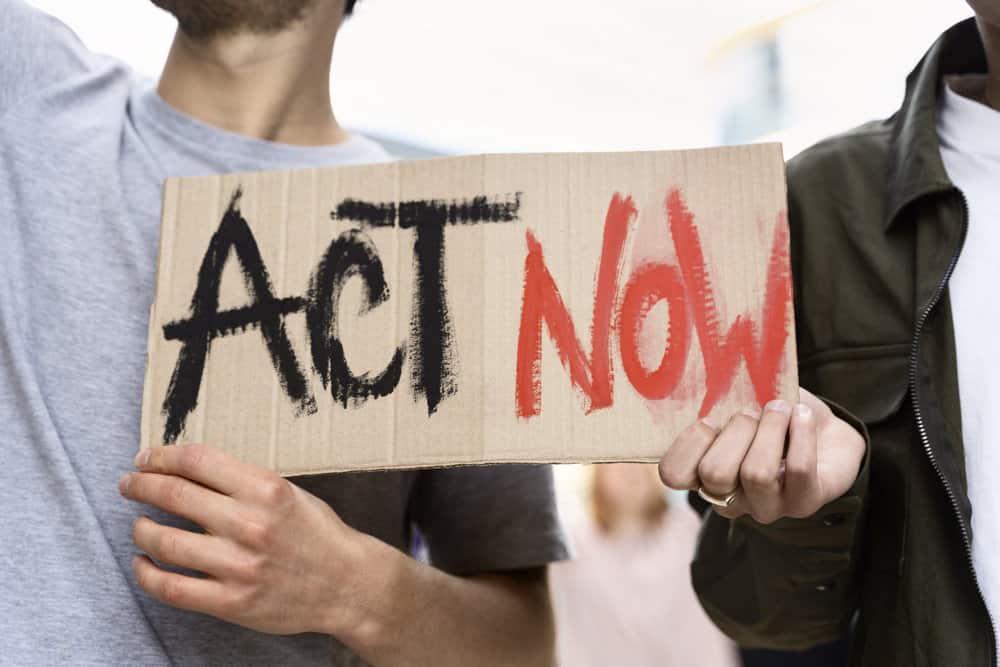Is It Possible To Be A Selective Empath?
*We may earn a commission for purchases made using our links. Please see our disclosure to learn more.
Human empathy is a truly loving expression of compassion, and it’s easy to believe that empaths are people who have the trait of universal empathy. Empaths care very deeply about how other people are feeling and the difficult emotions they may be facing.
Empathetic responses, however, take a heavy toll. Empaths often feel overwhelmed and exhausted. They may even have to isolate themselves to recharge their batteries, and they must practice selective empathy.
While being an empath is thought of as an all-or-nothing trait, you can be a selective empath. You may be more attuned to certain emotions or situations but may not experience empathy in all situations. You can learn to control your empathic abilities with self-awareness and emotional regulation.
Empathic responses really drain your energy. I know because I am an empath, and I often have to get away from people and out into nature to recharge my batteries. It’s important for people to understand the reasons for selective empathy in order to appreciate the empath’s need for peace and quiet. Here’s more useful information.
Why Do Some Empaths Practice Selective Empathy?

There are many reasons why people practice selective empathy. For an empath, empathy is not as much a choice as a way of being. They are deluged by a barrage of emotions whenever they are around other people. The more people, the more emotions they experience.
While there are toxic people, like narcissists, who can practice selective empathy for manipulative reasons, empaths sometimes practice this for the following reasons.
- It’s exhausting – empathy takes work, and it drains your own energy
- You empathize with people you feel you belong with – other people are not part of your group, so you focus your efforts within your own group
- It’s easier to empathize with people who think and believe as you do
- Cultural conditioning – you’re encouraged to focus on other people like you, and you’re taught some people are inherently inferior
- It reduces the feelings of separateness – you empathize with like-minded people to avoid feeling different and separate
There are numerous examples throughout history of how selective empathy has been used to alienate certain groups of people, and it’s still going on in the modern world. Black people are seen as criminals, brown people are drug dealers or invaders, and indigenous people are stereotyped as savages.
“Suffering for certain groups is not a result of a lack of empathy, but a highly selective one, which means basically you give up on civil society at that point. You give up on democracy. Because if you feed into this division more and you let it happen, it will become so strong that it becomes dangerous.” – Fritz Breithaupt, Professor and Researcher on Empathy |
An empathetic person raised with these kinds of cultural beliefs doesn’t even attempt to extend their empathic abilities to people outside their group. Group pressure is often a very strong force in dictating a collective response, and empaths, like anyone else, feel that pressure.
What are Other Reasons People Practice Selective Empathy?

There are other reasons that people might engage in selective empathy. They might, for example, have one of the autism spectrum disorders. These are often characterized by an intense internal focus and selective empathy.
Depending on the severity of such a disorder, the individual may have impaired empathy and be incapable of understanding in a compassionate way the experiences of other people. This can easily result in the inability to engage in altruistic behavior and other types of prosocial behavior.
Another reason some people practice selective empathy is that they are dark empaths. Some narcissists, for example, have what is known as cognitive empathy. They can intellectually understand other people’s emotions, but they don’t feel those emotions.
These dark empaths then use their empathic abilities to manipulate and emotionally abuse other people. They often make them codependent enablers, as this video discusses.
Though they have that one component of empathy, they don’t have the ability to genuinely understand other people’s experiences. Of course, they also have impaired interpersonal functioning, as is evident in their bad behavior.
Can You Change Selective Empathy as a Habit?
Empaths can change a habit of selective empathy if they choose. There are several things that anyone can do to increase their prosocial behavior and extend their empathic abilities to people beyond their own group.

This is also true of people in general who may be tempted to show empathy only to certain people or in certain circumstances. Here are several tips for changing from selective empathy to universal empathy.
Recognize Your Selective Empathy
Sometimes, empaths just get into habits like anyone else. They don’t even think about the fact that they may be limiting their empathetic responses to certain groups of people. Even if they recognize the equality of their fellow humans, to protect themselves they may shield themselves from going outside of their comfort zone.
They engage in altruistic behavior, but they are more limited in where they go and who they get to know. That limits their empathic abilities. By recognizing the situation, they can make conscious choices to change it.
Change the Cultural Narrative
When you understand how your cultural narrative affects your personal behavior, you can begin to change that narrative and, subsequently, your behavior. Empaths are also subject to those cultural narratives.
Though they don’t have a choice about experiencing other people’s emotions, they do have a choice to go outside of their cultural boundaries. In fact, their empath abilities can be key in helping to change that narrative. Their kind, compassionate nature can help them to spread positive emotions instead of negative ones.
Take Up a Favorite Empathic Cause
It can really help to get involved in some kind of charitable endeavor that takes you outside of your normal comfort zone. This allows you to see how people your culture might label as ‘other’ are often thrust into a context of pain. That’s when the empath understands that they are not ‘other’ at all.
What is the Association Between Empathy and Compassion?

To understand the association between empathy and compassion, you have to understand how each is defined.
Empathy
This is defined as the awareness of other people’s emotions and an understanding of how they feel. You are able to focus on facial expressions – pay attention to pain faces or happy faces of someone with whom you’re interacting – in a way that allows you to experience their emotions along with them. That helps you understand what they’re going through in a literal sense.
Compassion
Compassion is actually the emotional response you have to the experience of empathy or sympathy. For an empath, the emotional response is as strong as if they were experiencing the same thing as the person they’re focused on.
Most of the time, this creates an urge to help the person. In people with impaired empathy, however, they are unable to experience that desire to help.
According to researchers in psychology at Oxford University, only about 1 – 2% of people are sensitive enough to feel and absorb the emotions of people around them. In the United States, that equates to approximately two million empathic people. According to Australian researchers in psychology, these individuals have the attentional control it takes to understand other people’s emotions, but empathy takes two distinct forms.
- Cognitive empathy – this is the type of empathy that allows something to adopt another person’s perspective and intellectually understand their emotions.
- Affective empathy – this is the type of empathy that allows people to actually vicariously experience other people’s emotions.
It seems like those definitions differ in small ways, but the difference in empathic abilities is huge. As mentioned, toxic people like narcissists often have cognitive empathy but not affective empathy, and they use that ability in their abusive behavior. They will even turn their own daughter into a submissive codependent, as you can see in this video.
Final Thoughts
It is possible to practice selective empathy, and by some accounts, it is becoming more common in our modern world. Even empaths are affected by cultural pressures that result in division as opposed to unity. An intuitive empath will always feel and absorb the emotions of other people, but whether or not they choose to help them or even show them compassion may depend on selective empathy.
It is possible to change to become more universal in your empathetic style; however, by practicing the steps we’ve discussed, you can extend your compassion to people you might have previously thought of as ‘other.’ That ultimately makes the world a better place.
I have created a 5-Step Roadmap to Heal Emotional Triggers to say goodbye to emotional triggers and break free from manipulation. Get your free copy now and empower yourself with the tools you need to thrive emotionally. Click here to receive it straight to your inbox!
--
If you want more tips for dealing with narcissists, setting boundaries, and managing emotional triggers, make sure you subscribe to my youtube channel




